Rollups — quick introduction — How to speed transactions on Ethereum
Last days Ethereum network, even after crash on the market, requires expensive fees to pay in every transaction. It is especially known by…
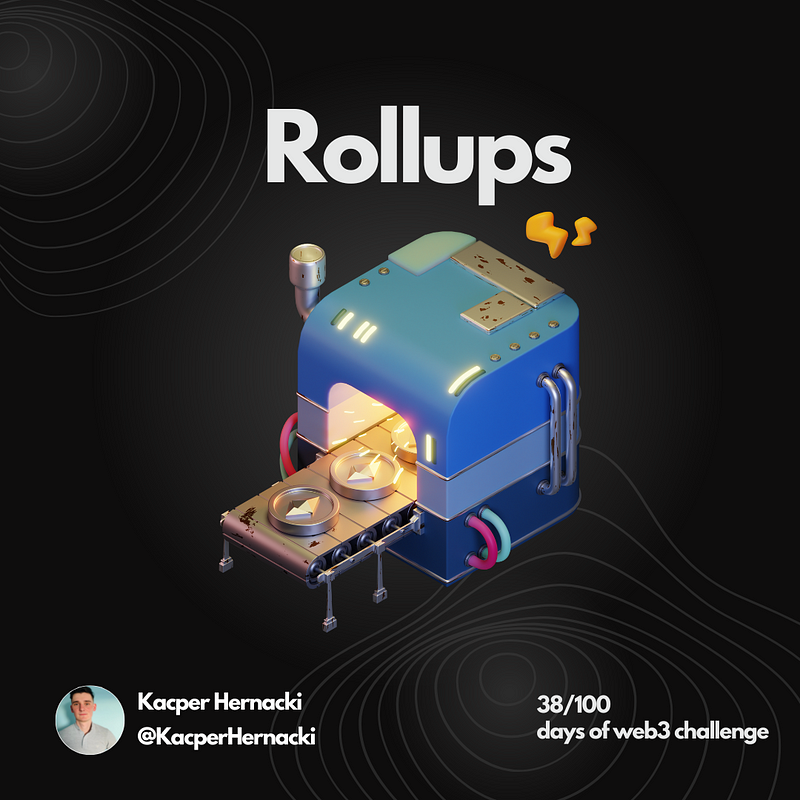
Last days Ethereum network, even after crash on the market, requires expensive fees to pay in every transaction. It is especially known by NFT holders who buy new assets on decentralized platforms. Rollups prevent that, let’s check why…
Agenda:
- Intro,
- Definition,
- How it works,
- Conclusion.
Definition
Rollups are so called “scaling solution”. It literally rolls up many transactions and returns that to block as a single one.
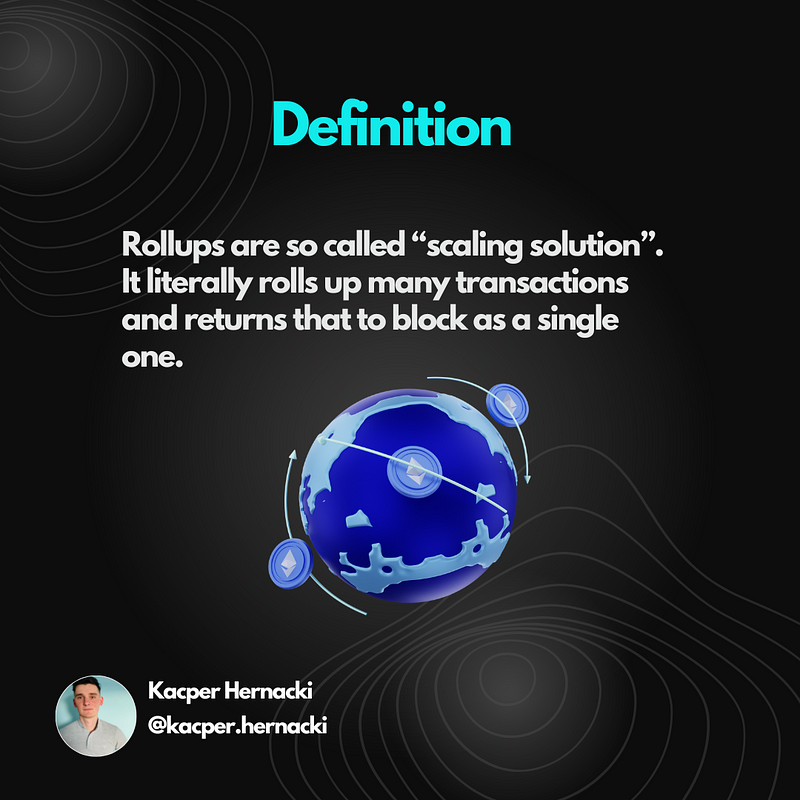
Rollups cut costs of fees dramatically. Moreover, the price of rolling up is split among the users. It is worth to mention that it also speeds up a network, as Ethereum has now limit to 15 transactions per second, it proceeds one rollup as a single transaction.
Using this solution multiplies the limit and increases capacity.
Vitalik Buterin, the founder of Ethereum claims, that Rollups will have a significant role after update of the ecosystem to Ethereum 2.0.
How it works
To explain how Rollups work, it is necessary to mention that there are two types of them:
- optimistic rollups,
- and zero-knowledge rollups.
Optimistic rollups
As name indicates, rollup process make an assumption that every transaction is valid, without checking it. It speeds up the process.
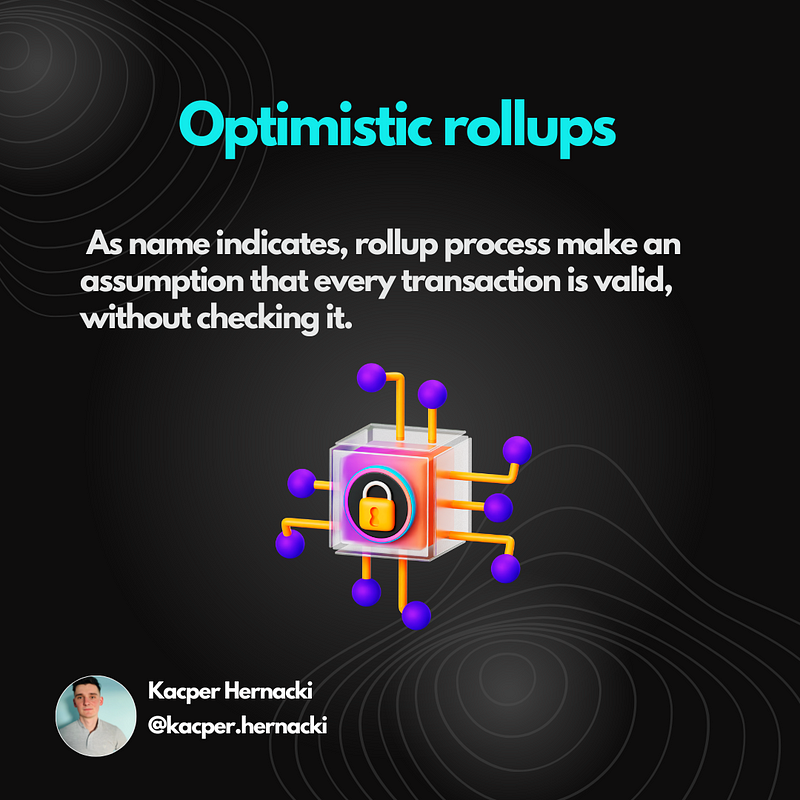
Moreover, when somebody tries to cheat, it is detected while creating new block of ethereum network.
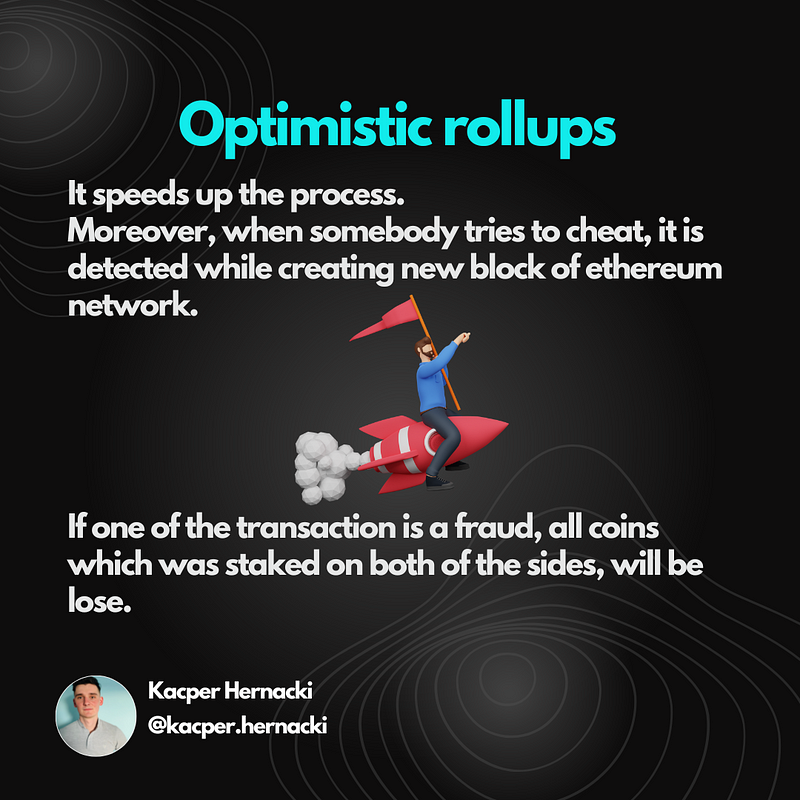
Zero-knowledge rollup
This rollup works differently, it relies on a piece of cryptography, called zero-knowledge proof.
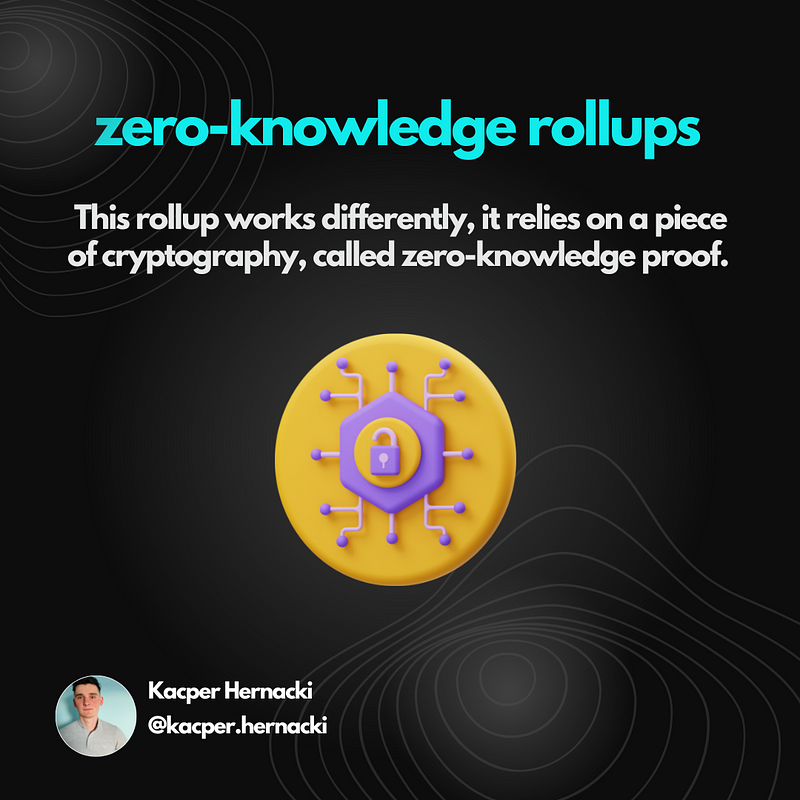
Conclusion
Rollups are lowering costs of fees and speed up the entire network, what is solving most fundamental problems with this ecosystem. Security on paper is looking ok, but it requires time to see if there will be no smart enough hacker to break it.
If you want more web3 resources, follow my repo with the topics:
https://github.com/Kacper-Hernacki/100-days-of-web3-challenge-blockchain-free-materials




